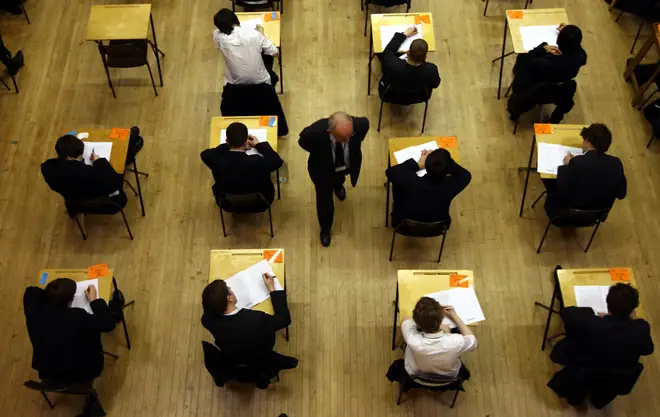
Ian Payne 4am - 7am
2 September 2020, 13:50

The Government was warned that cancelling exams and opting for calculated grades for students amid the Covid-19 pandemic would be the "worst-case scenario", the Ofqual chair has suggested.
Roger Taylor said it was a "fundamental mistake" to believe the algorithm used to calculate A-level and GCSE results would "ever be acceptable to the public."
He has defended the body against criticism following a major U-turn over the downgrading of thousands of students.
Mr Taylor revealed the exams body advised the Government against cancelling exams this year because of the Covid-19 pandemic.
The regulator suggested to education secretary Gavin Williamson at the beginning of the outbreak that exams could be held in a "socially distanced manner".
He said: "The third option - if neither of these were acceptable - would be to have to try and look at some form of calculated grade.
"We did also look at whether that might be a teacher certificate rather than attempting to replicate exam grades.
"That was our advice to ministers.

"Ofqual would have known the exam algorithm would affect the poorest hardest"
"It was the Secretary of State who then subsequently took the decision and announced without further consultation with Ofqual that exams were to be cancelled and the system of calculated grades were to be implemented."
He added that opting for the third option of calculated grades was the "worst-case scenario".
Tory MP Robert Halfon, chairman of the committee, summarised Ofqual's defence of the exam chaos as "not me guv".
He questioned why Ofqual did not use the time between receiving schools' grades in June and results day in August to test the algorithm "rather than wait until the eleventh hour to realise the algorithm produced discrepancies".
Mr Halfon said: "Perhaps some of the wild anomalies that sixth form colleges saw surely would have become apparent much sooner.
"In essence, what I am asking is, should you have done your own mock exam in terms of the algorithm?"
Responding to the concerns, Dr Michelle Meadows, executive director for strategy, risk and research at Ofqual told MPs: "We tested the model thoroughly.
"We were confident that the model that we chose was the most accurate overall and the most accurate for those different groups of students."
Mr Taylor added that the risks with the model were raised with the Department for Education (DfE) "throughout the process".
Sally Collier resigned from her role as head of Ofqual last week, while the DfE announced that permanent secretary Jonathan Slater would be standing down a day later.
Critics complained that Ofqual's algorithm - which was used by exam boards to make the adjustments - had penalised pupils in schools in more disadvantaged areas, while benefiting those in private schools.
Headteachers reported that schools and colleges with larger cohorts saw more of their students' grades downgraded, while those with smaller cohorts did not appear to be as affected.
Politicians and education unions called on ministers to scrap the unfair model and revert to teachers' estimated grades to ensure students could progress into higher education and employment.